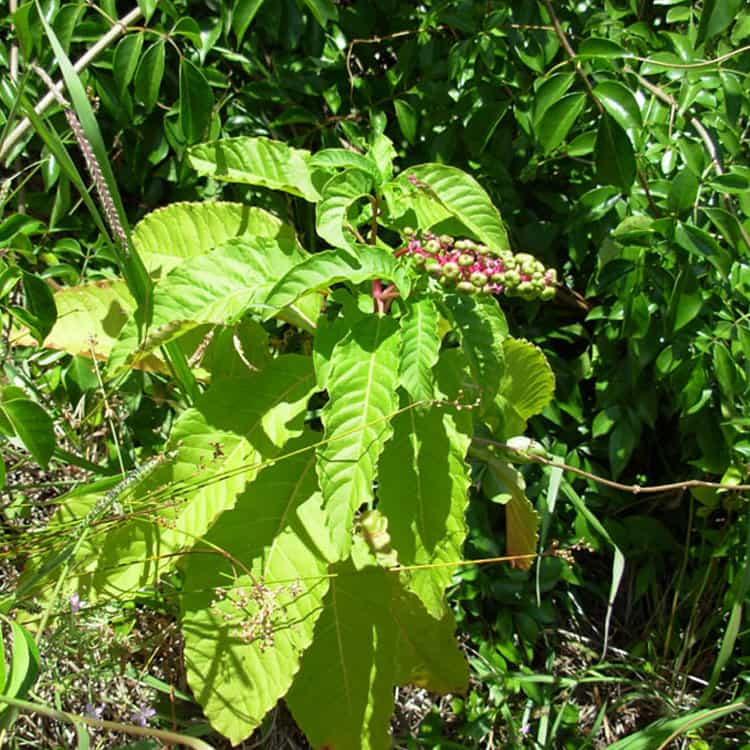Warning
For all ingestions seek urgent medical attention.
Description
A perennial shrub to 3m with a fleshy taproot. Found growing on roadsides and in moist waste or disturbed areas.
Flowers are small, held in open racemes and are white to green in colour.
The soft elliptic leaves are tapered into the petiole, 4-14cm long and 1.5-4cm wide.
Toxicity
Symptoms
All parts of the plant are poisonous, especially the green berries and roots. Symptoms from ingestion may include headache and severe gastroenteritis including burning in the mouth, abdominal cramping, intense vomiting and foamy diarrhoea. Symptoms may last 48 hours and death has been reported. Especially toxic to children.
Images

Details
Common name: Pokeweed
Botanical name: Phytolacca americana.
Other common names: Pokeberry, pigeonberry, inkberry
Family: Phytolaccaceae
General description: A perennial shrub to 3m with a fleshy taproot. Found growing on roadsides and in moist waste or disturbed areas.
Flowers: Flowers are small, held in open racemes and are white to green in colour.
Leaves: The soft elliptic leaves are tapered into the petiole, 4-14cm long and 1.5-4cm wide.
Fruit/Berries: The fruit are flattened globose berries, dark purple when ripe, about 8mm in diameter with 10 segments,and copious red juice, held on stalks (pedicels) about 5-8mm long in lateral drooping “spikes” (racemes).
Other: The sap is acrid and can cause skin irritation.